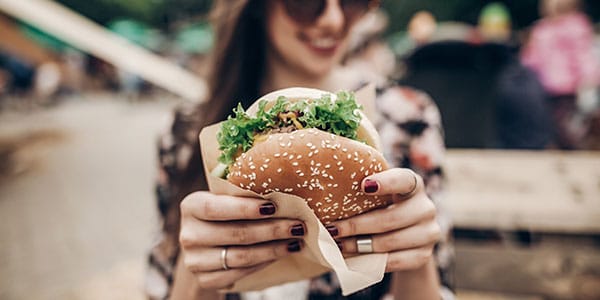Research is showing that diet may do more than play a role in your weight and health, it may also play a role in delaying the start of menopause, giving women choices about how they manage their bodies and fertility.
Menopause is an important phase in every woman’s life. Some women hope for it, longing for the days when they no longer have to stress about pregnancy prevention or deal with the hassles of a monthly period. Other women dread the time when their periods begin to spread out and eventually disappear. They worry about the side effects of menopause, such as depression, fatigue and hot flashes.
Understanding Menopause
The average woman begins menopause at age 51, but it can occur anywhere between the early 40s and the late 50s. When a woman begins menopause before the age of 40, it’s considered premature menopause.
A number of factors will affect when you go into menopause, such as:
- The way you eat.
- Your weight.
- The age your mother went through menopause.
- Whether you’re a cigarette smoker.
- Whether you’ve ever gone through chemotherapy or taken other medications.
Diet and Menopause: What the Research Shows

If your goal is to delay menopause as long as possible, consider some of the foods on this list.
- Oily Fish
The benefits of fish oil have been well documented. Not only does it help keep your heart healthy, but it also might help your body continue menstruation for longer. Fish oil also might benefit hair and nail growth, healthy skin and even mental health. There are so many reasons to eat plenty of fatty fish or take fish oil. - Legumes
Beans, chickpeas, lentils and other legumes all contain healthy fiber, which is important for digestive function as well as heart health. According to the research from Leeds, a meal plan rich in legumes can also help protect against early menopause. This is great news for vegetarians, who usually eat these foods as staples. - Calcium and Vitamin D
Another study from the Brigham and Women’s Hospital, University of Massachusetts and Harvard Medical School found that women who got plenty of calcium and vitamin D in their diets experienced a 17 percent lower risk of early menopause. Foods with calcium and vitamin D include fortified dairy products, leafy greens and other vegetables.
A Healthy Menopause Food Plan: What to Choose
Since fish oil, legumes and calcium-rich dairy products are all part of a recommended dietary plan anyway, you won’t need to make too many major adjustments to begin eating mindfully for menopause. Stick to whole grains, nuts and seeds, organic dairy products, eggs, leafy greens and plenty of other vegetables. Doing your best to eat mostly plant-based foods is helpful, but remember, balance is key. There are a lot of claims about hormones, fertility and restricted diets like veganism, but not everything you read online is true.
When it comes to what to avoid, steer clear from refined carbohydrates, like white rice and pasta.
Menopause doesn’t have to be a negative thing, nor does it have to slow you down. However, if you’re considering trying for a pregnancy later in life, it makes sense that you might want to take measures to ensure you don’t go into menopause too early. We can’t control everything, but we can control what we choose to eat.





